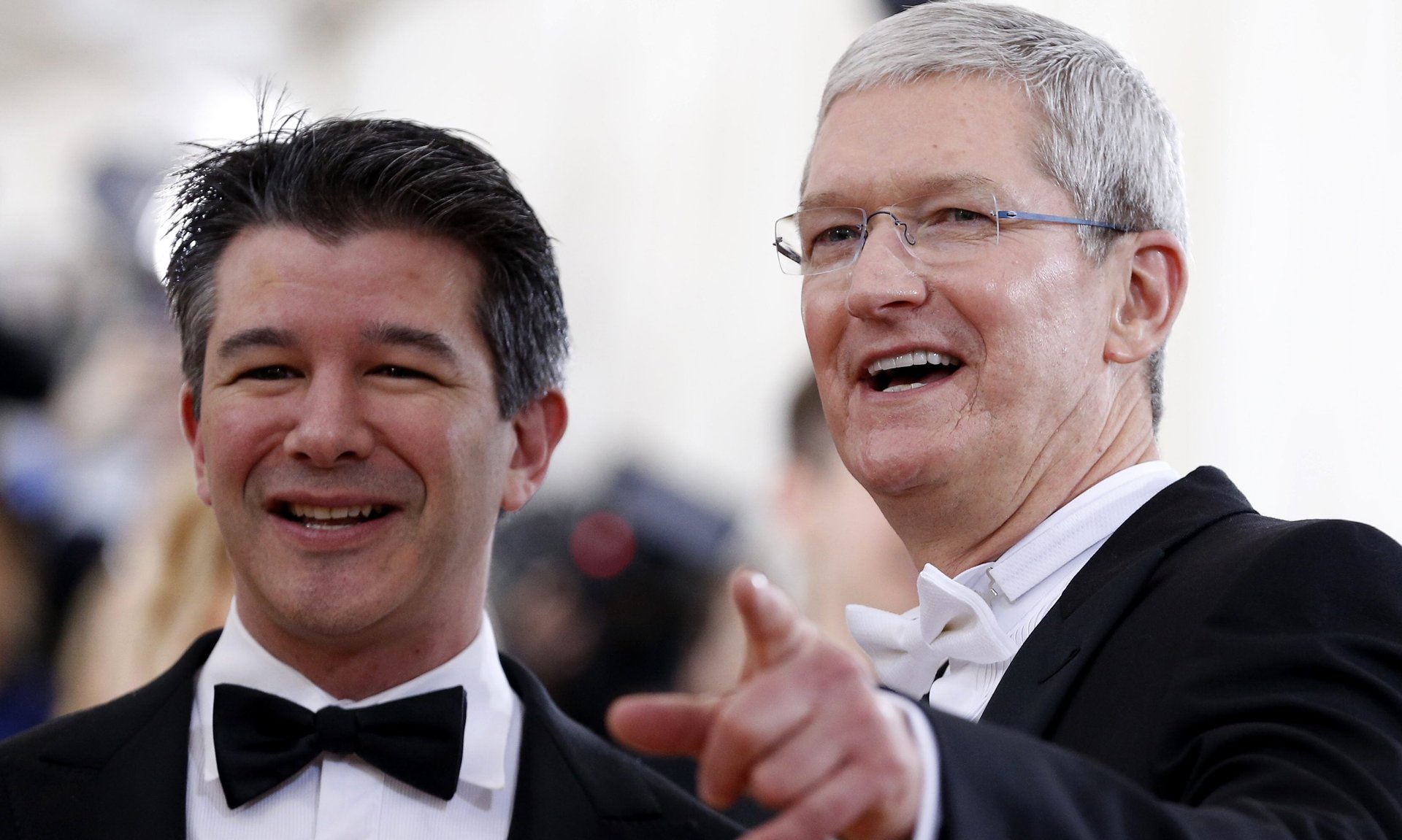Apple is now an investor in the world’s biggest ride-sharing companies
Just over two months ago, Apple made a $1 billion bet on Didi, the dominant ride-sharing company in China. Today (Aug. 1), that move has made Apple a part-owner of Uber, thanks to a $1 billion investment by Didi into Uber. All of a sudden, Apple has found itself with stakes in two of the world’s biggest ride-sharing firms.


Just over two months ago, Apple made a $1 billion bet on Didi, the dominant ride-sharing company in China. Today (Aug. 1), that move has made Apple a part-owner of Uber, thanks to a $1 billion investment by Didi into Uber. All of a sudden, Apple has found itself with stakes in two of the world’s biggest ride-sharing firms.
The progress reports for investors from Uber and Didi—which itself owns stakes in rivals like Ola, Grab, and Lyft—could come in handy for Apple executive Bob Mansfield, who is said to be leading Project Titan (paywall), a secretive car project. Titan is probably an electric vehicle with some autonomous driving capabilities, although much about the project is shrouded in mystery.
Apple has never acknowledged that it’s developing a car, although it has recruited hundreds of people from the auto industry to work on batteries, autonomous driving, and other features. Titan’s launch date is said to have been delayed to 2021, two years later than an original target set by management that team members believed was “unrealistic,” according to the Wall Street Journal (paywall).
Uber will need all the cash and high-tech backing it can muster as it tries to build its own mapping technology, at a cost of $500 million. It’s trying to reduce its reliance on Google’s maps (which, through its venture-capital arm Google Ventures, is also an investor in the ride-sharing firm), so a link with Apple, another tech giant with its own map tech, won’t hurt.
More immediately, though, Uber boss Travis Kalanick can settle a grievance with his girlfriend. He was dismayed that she had indirectly become a Didi investor by owning Apple stock back in May, publicly bemoaning the fact in a tweet. The recent wheeling and dealing among ride-sharing firms means that she now owns a sliver of Kalanick’s company, too.